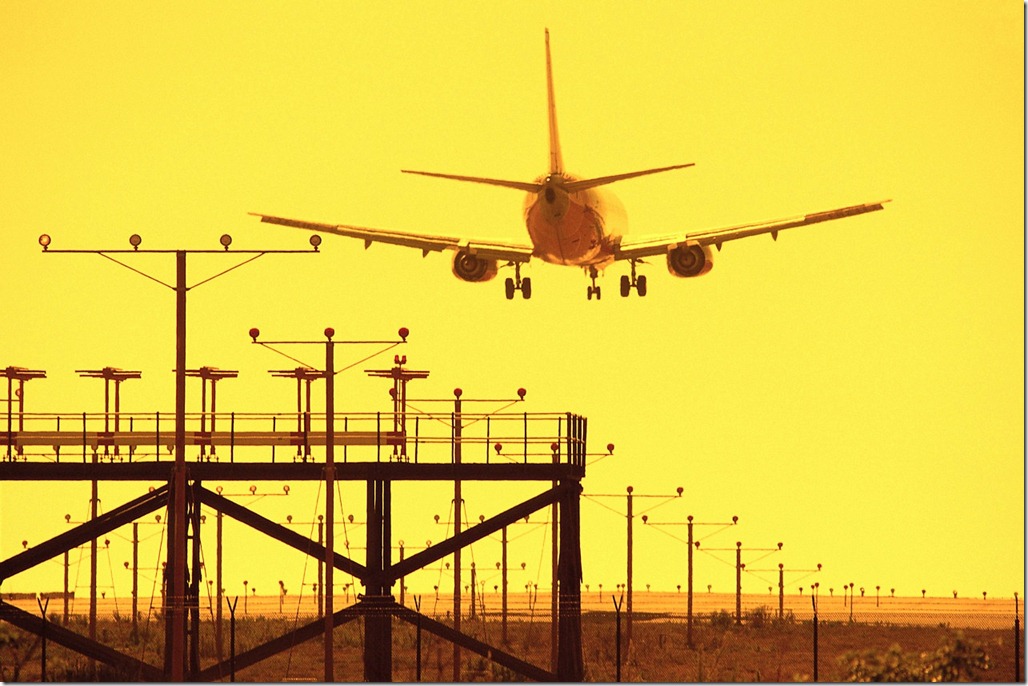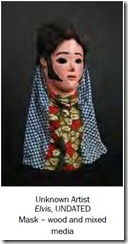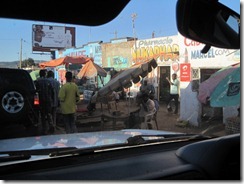My journey from Malawi to Harare, Zimbabwe on May 2 was nothing short of amazing. I started off early from Cape Maclear on the shores of Lake Malawi. I got lost in the small town and asked for directions. A young, half drunk man I discerned was named “Philemon” pointed me in the right direction but then asked for a ride to a hospital in Monkey Bay, a town about 25 kilometers from Cape Maclear. I normally am not so brash as to let a stranger in my car but had had a good experience with the locals, who were quite friendly and generally of the honest sort. Philemon showed me the way out of town – but not before he tried to pursuade me to help a couple friends carry their buckets of water to some unknown destination elsewhere in town. I declined because I needed to hit the road. We left town and drove the rough road from Cape Maclear to the main highway. I drove a bit fast and caught air a couple of times with my SUV, especially when I misjudged the dip of a culvert and went over it too fast. Philemon’s personal story changed several times during the trip. First he was sick and needed to go to the hospital, then the mother of his child in Mangochi, another town an hour from Cape Maclear, was disgruntled because Philemon never visited his son. I ultimately convinced him to disembark when we reached the highway junction a few miles south of Monkey Bay. Philemon was a tragic figure. Young, unemployed and apparently penniless, it was obvious that he had a good heart but was emboldened to frivolity. He seemed to prefer the bottle to facing responsibility and making a better life for himself. As is so often the case, he seemed the type who blamed his circumstance on his surroundings, rarely owning up to the fact that he had a brain, two hands, and the physical wherewithal to change his life.
Juxtapose Philemon with a kindly youth named “Absent” I met in Cape Maclear who was anything but. I befriended Absent, a worker at the lodge where I stayed. He told me that he earns a pittance, $50 per month, and yet supports his parents and six siblings. He lives with his parents, who grow corn and set aside some for the family to turn into corn (mealie) meal and nshima (corn porridge). Absent gave me a tour of Cape Maclear and bought me a carton of Chibuku, an African corn-based home brew alcohol that most foreigners shun and locals drink because it’s the cheapest indulgence available. Absent took me to his home and offered me a beverage. Declining to drink anything made from local water so as not to fall ill from whatever might have infested the water, I asked for a Coca-Cola guessing that his family might have some. A bottle of Coke is four times more expensive than Chibuku, but for about 75 cents you can buy a 500ml glass bottle and then return the bottle to the store or kiosk. Absent’s family did not have any, so he sent his half sister to buy some. I was shocked. I was trying to avoid inconveniencing him, and he went out of his way to make me happy. After we returned to the lodge, I gave Absent ten dollars to cover the cost of the Coke, Chibuku, and supplement his family’s income. He initially declined my money and said that it was his pleasure, convincing me that he was sincere and was not simply spending time with me to make a quick buck.
Journey from Malawi to Zimbabwe via Mozambique




